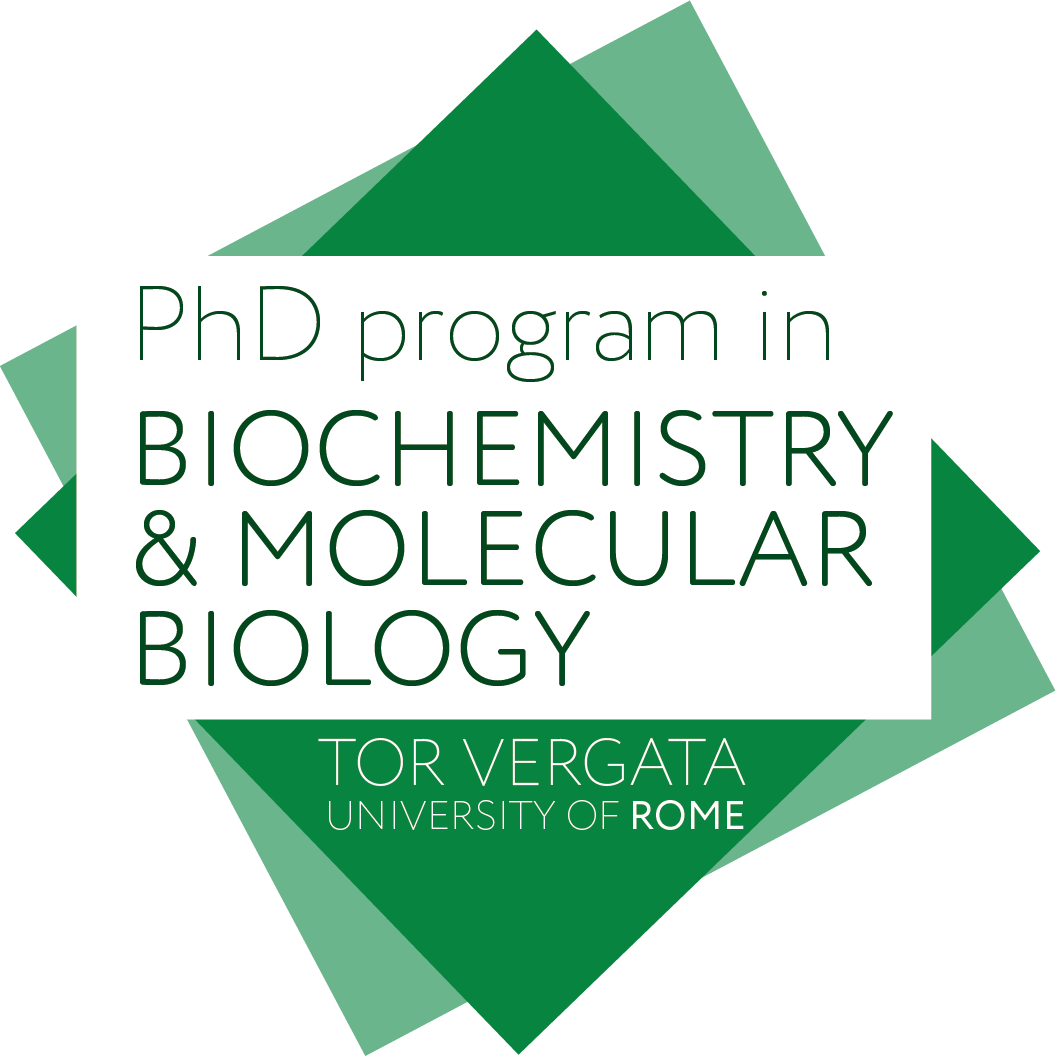
Almost a half of the alumni enrolled in this PhD programme continue their career as postdoctoral fellows in leading research institutions both in Italy and abroad, including our university and other Italian research institutions, University of Kostanz (Germany), University of Columbia and NIH (USA), as well as Universities of London, Oxford and Cambridge (UK), while most of the alumni remain in biomedical research either within accademia or in biomed companies.
Meet our alumni
> Full & Associate professors
> Assistant professors
> Researchers & postdocs
Full & Associate Professors | Alumni
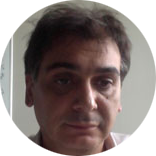
Prof Vincenzo De Laurenzi | 1994 Alumni
Full professor of Biochemistry
University of Chieti
See his page here![]() ORCID
ORCID

Prof Eleonora Candi | 1995 Alumni
Full professor of Biochemistry
University of Rome “Tor Vergata”
See her page here![]() ORCID
ORCID
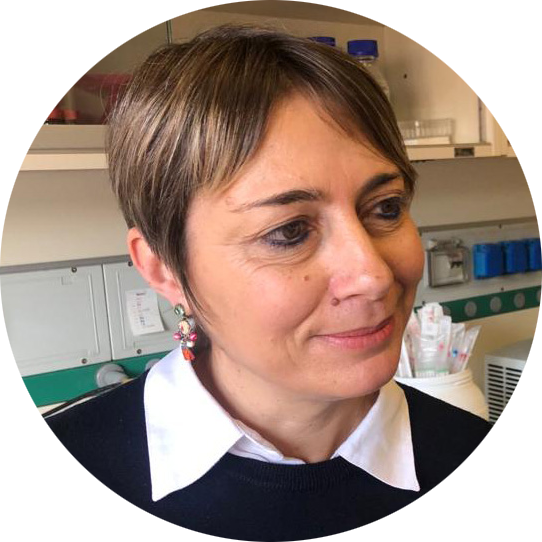
Prof Francesca Bernassola | 1998 Alumni
Associate professor in Molecular Biology
University of Rome “Tor Vergata”
See her page here![]() ORCID
ORCID
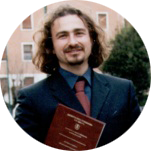
Prof Alessandro Terrinoni | 2001 Alumni
Associate professor in Biochemistry
University of Rome “Tor Vergata”
See his page here![]() ORCID
ORCID
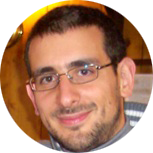
Prof Sergio Oddi | 2002 Alumni
Associate professor in Biochemistry
University of Teramo
See his page here![]() ORCID
ORCID

Prof Andrew Oberst | 2006 Alumni
Associate professor in Immunology
University of Washington
See his page here![]() ORCID
ORCID
Assistant Professors | Alumni
Prof Anissa Chick | 2006 Alumni
Lecturer in Cell biology
University of London St George’s
See her page here![]() ORCID
ORCID
Postdocs and Researchers | Alumni
Dr Vittoria Bellato | 2023 Alumni
Clinical Fellow at Department of Surgery. (United Kingdom)![]() ORCID
ORCID
Webpage
Dr Silvia Buonvino | 2023 Alumni
Research Fellowship at University of Rome “Tor Vergata” (Italy)![]() ORCID
ORCID
Dr Cristina Fiorani | 2023 Alumni
Senior Clinical Fellow at University College London (United Kingdom)
Webpage
Dr Eleonora Mammarella | 2023 Alumni
Senior Clinical Fellow at University College London (United Kingdom)![]() ORCID
ORCID
Webpage
Dr Rosalba Pecorari | 2022 Alumni
Postdoc at University of Rome “Tor Vergata” (Italy)![]() ORCID
ORCID
Dr Francesco Rugolo | 2021 Alumni
Postdoc at University of Rome “Tor Vergata” (Italy)![]() ORCID
ORCID
Dr Carlo Ganini | 2021 Alumni
Oncology postgraduate at the Bari University Hospital (Italy)![]() ORCID
ORCID
Dr Vincenza Simona Del Vecchio | 2021 Alumni
Postdoc at University of Milan (Italy)
Dr Angela Cappello | 2020 Alumni
Postdoc at University of Bari (Italy)![]() ORCID
ORCID
Dr Alessio Butera | 2020 Alumni
Postdoc at University of Konstanz (Germany)![]() ORCID
ORCID
Dr Consuelo Pitolli | 2019 Alumni
Postodc at Università Cattolica del Sacro Cuore (Italy)![]() ORCID
ORCID
Webpage
Dr Claudia Fierro | 2019 Alumni
Postdoc at Bambino Gesù Hospital (Italy)
Dr Valeria Unida | 2019 Alumni
Postdoc at University of Rome “Tor Vergata” (Italy)![]() ORCID
ORCID
Dr Veronica Ciuffoli | 2019 Alumni
Postdoc at National Institutes of Health (USA)![]() ORCID
ORCID
Webpage
Dr Chiara Fulci | 2019 Alumni
Postdoc at University of Rome “Tor Vergata” (Italy)
Dr Veronica de Paolis | 2019 Alumni
Postdoc at the National Council of Research (Italy)![]() ORCID
ORCID
Dr Emanuele Panatta | 2017 Alumni
Previous position: Postdoc at University of Cambridge (UK)
Current position: Postdoc at University of Rome “Tor Vergata” (Italy)![]() ORCID
ORCID
Dr Alessio Ottaviani | 2017 Alumni
Postdoc at University of Rome “Tor Vergata” (Italy)![]() ORCID
ORCID
Dr Matteo Cassandri | 2017 Alumni
Postdoc at University of Rome La Sapienza (Italy)![]() ORCID
ORCID
Dr Flavia Novelli | 2017 Alumni
Junior Researcher at University of Hawaii (USA)![]() ORCID
ORCID
Dr Varvara Petrova | 2017 Alumni
Postdoc at University of Verona (Italy)![]() ORCID
ORCID
Dr Artem Smirnov | 2017 Alumni
Previous position: Postdoc at University of Oxford (UK)
Current position: Researcher at University of Rome “Tor Vergata” (Italy)![]() ORCID
ORCID
Dr Emanuela Piermarini | 2016 Alumni
Research Scientist at Drexel University College of Medicine (USA)
Dr Jessica Takarada | 2016 Alumni
Postdoc at CQMED-Unicamp (Brazil)
Dr Marco Pieraccioli | 2015 Alumni
Postdoc at Università Cattolica del Sacro Cuore (Italy)![]() ORCID
ORCID
Dr Daniela Gnani | 2015 Alumni
Previous position: Postdoc at the Fondazione Telethon (Italy)
Current position: Postdoc at Vita-Salute San Raffaele University (Italy)![]() ORCID
ORCID
Dr Arianna Giacobbe | 2015 Alumni
Associate Research Scientist at Columbia University (USA)![]() ORCID
ORCID
Webpage
Dr Ramona Palombo | 2014 Alumni
Previous position: Postdoc at the IRCCS Fondazione Santa Lucia (Italy)
Current position: Researcher at Fondazione Umberto Veronesi (Italy)![]() ORCID
ORCID
Webpage
Dr Tiziana Bisogno | 2014 Alumni
Researcher at the National Council of Research (Italy)![]() ORCID
ORCID
